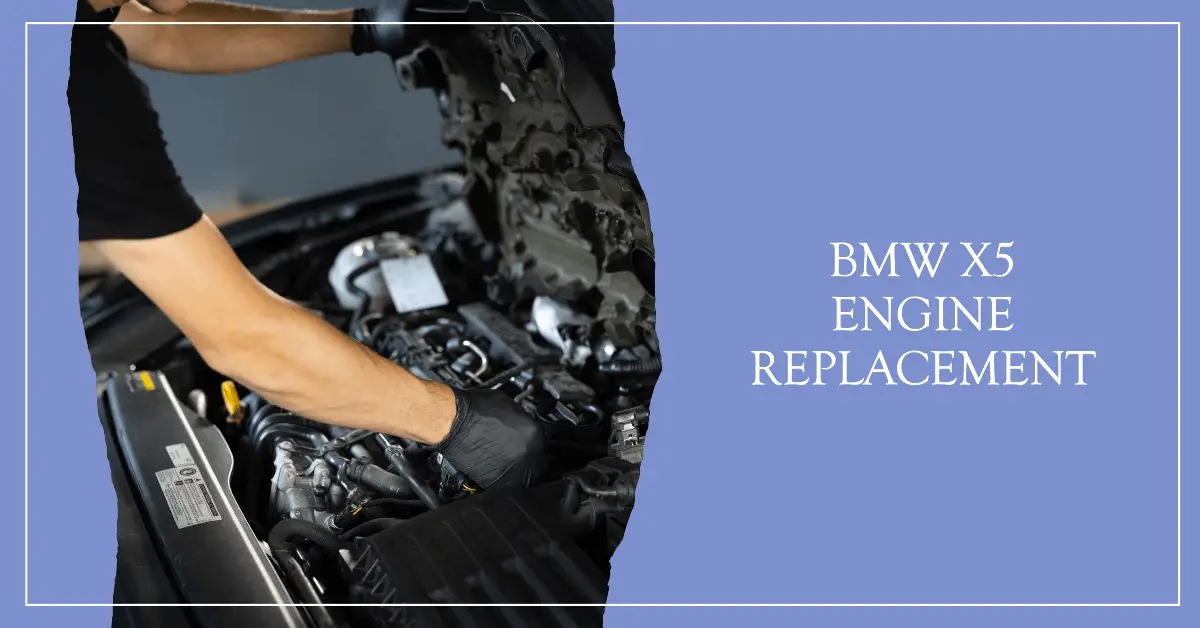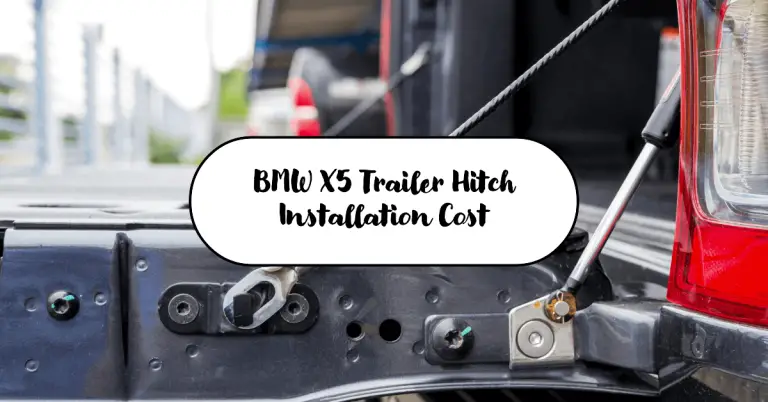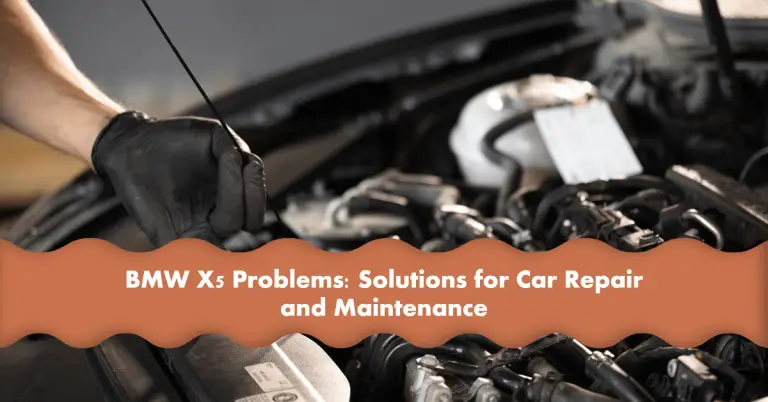BMW X5 Engine Replacement Cost: What You Need to Know
Are those telling engine noises coming from under the hood of your BMW X5 giving you anxiety? Maybe the check engine light recently lit up and you suspect major engine issues are afoot. Or perhaps your mechanic broke the tough news at your last oil change – it’s time to replace the engine in your aging X5.
Regardless of what signals indicate it’s time for a new engine, one big question looms: How much will a BMW X5 engine replacement cost you?
The answer is not straightforward, with the price ranging widely depending on the specific engine, whether OEM or aftermarket parts are used, who performs the work, and various other factors. However, you can expect to budget $6,000 to $12,000+ for a full BMW X5 engine replacement when all is said and done.
In this detailed guide, we’ll walk through everything you need to know about BMW X5 engine replacement cost. You’ll learn:
- Average price ranges for parts and labor
- What impacts the total engine replacement cost
- How long the job takes
- When it’s time to replace the X5 engine
- How to save money on the repair
- What to ask your mechanic
And much more! Let’s dive in.
Average BMW X5 Engine Replacement Cost
The engine is the heart of your X5, and replacing it is one of the most complex and expensive jobs you can undertake. So what’s the damage to your wallet?
On average, plan to budget:
- $2,000 to $4,000 for labor. Replacing an engine is very labor-intensive, requiring 12-18 hours in most cases. BMW specialty shops charge $100-$150 per hour on average.
- $4,000 to $8,000+ for parts. The engine itself is the biggest cost, but numerous additional components are also required. OEM BMW parts cost more than aftermarket.
With labor and parts combined, you’re looking at a total bill of $6,000 to $12,000+ in most cases. The wide range comes down to factors like:
Factors That Impact BMW X5 Engine Replacement Cost
Several key factors influence what you’ll pay for a new BMW X5 engine:
Engine Type
- 4 cylinder – The xDrive30i and older X5 models use BMW’s B46 or B48 4-cylinder turbo engines. Replacement cost is lower.
- 6 cylinder – The xDrive40i has a B58 straight-6 cylinder engine, with higher cost than the 4-cyl.
- 8 cylinder – The high-performance xDrive50i runs a N63 twin-turbo V8 for maximum power. It’s the most expensive to replace.
Shop Type
- Dealership – BMW dealers charge $150-$200 per hour for labor. And they use original OEM parts. Most expensive option.
- Independent Shop – Independent shops can perform the work for much less, around $100-$150 per hour in labor. Many use aftermarket parts to save cost.
Location
Shops in areas with higher costs of living and higher shop overhead charge more for labor. Replacement cost varies by region.
Parts Used
- OEM parts – Original BMW components cost more. But they’re engineered to fit and perform optimally.
- Aftermarket parts – Third party replacement parts are cheaper but may fit inconsistently. Quality varies.
Additional Repairs
If other engine components like gaskets, sensors, or hoses need replacing too, it adds to the total engine replacement price.
As you can see, many factors impact the all-in price tag. Working with a reputable independent BMW specialist and using aftermarket parts can yield significant savings. Next let’s look at how long the intensive engine swap takes.
Time Required to Replace a BMW X5 Engine
Replacing the full engine is an incredibly intricate, lengthy job. On average, you can expect:
- Total time: 16-24 hours
- Labor time: 12-18 hours for just the engine work
The wide range depends on engine complexity, mechanic experience, and whether additional repairs or parts replacements are needed.
Here is a general outline of the full engine replacement process and time required:
- Drain fluids: 30-60 minutes to drain oil, coolant, transmission fluid
- Disconnect components: 2-3 hours to remove accessories like alternator, AC, steering, and disconnect all electrical connections and fuel lines.
- Remove engine: 4-6 hours to detach motor mounts, remove exhaust and intake, lift engine out. This is the most challenging and time-intensive step.
- Install replacement engine: 4-6 hours to carefully lower new engine, reconnect all components, replace mounts, connect exhaust and intake. Must ensure proper alignment.
- Reconnect fluids: 1-2 hours to replace oils, coolant, gaskets and refill
- Diagnostics and testing: 2+ hours to test drive, check for leaks and ensure proper operation.
As you can see, the replacement job involves meticulous precision at every stage, and rushing is never a good idea. The labor time can stretch further if other worn parts are found and need to be replaced during the process.
Ideally you want an experienced BMW mechanic who has performed many engine swaps before. While the job can be done in 16 hours, most shops will keep your X5 for 1-2 days minimum to allow time for unexpected issues.
Can You Drive With a Bad BMW X5 Engine?
Once you realize your X5’s engine is having serious problems, your first reaction may be to simply keep driving it and hope for the best. But is it safe to drive with a bad or failing engine?
The short answer is no – you should not attempt to drive once major engine issues arise. Here are some warning signs that indicate driving could risk further damage and you need to stop immediately:
- Knocking sounds – This usually signals low oil pressure or timing issues. Continued driving can damage internals.
- Significant power loss – If the engine makes noise but lacks power under acceleration, components may be damaged or failing.
- Oil leaks – Leaks can lead to oil starvation and total seizure. Pull over immediately if you see oil leaks.
- Overheating – If engine temperature starts to rise, it likely has a coolant leak. Driving it hot can warp and crack components.
- Check engine light – This signals computer has detected an engine fault. The specific code must be read but it’s not safe to ignore.
While it may seem fine at first, attempting to “limp home” a damaged BMW X5 engine can transform minor problems into catastrophic engine failure. It’s best to tow it to a shop rather than taking risks and incurring hefty repair bills down the road.
What to Ask the Mechanic About X5 Engine Replacement?
When dealing with a major job like a BMW X5 engine replacement, communication with your mechanic is key. Here are some questions to ask:
- Will OEM or aftermarket parts be used? Aftermarket parts can save money but may fit inconsistently.
- Is the full engine being replaced or just components? Rebuilding is cheaper but has more risk than a full swap.
- What engine options do you recommend as the replacement? Work with them to pick the optimal engine type and mileage.
- Will you replace related components like hoses, gaskets etc? It’s smart to replace these while engine is out to avoid future issues.
- Do you provide a warranty on parts and labor? Most offer at least 12 month warranty on their engine work.
- What is your total estimated cost for parts and labor? Get a written quote upfront so there are no surprises later.
The mechanic should provide a full plan for the replacement job and be willing to address any questions or concerns you may have. Make sure you understand what is being done and the associated cost before authorizing the engine swap.
How to Save Money on a BMW X5 Engine Replacement?
Since this is one of the most expensive maintenance jobs for the X5, it’s normal to look for ways to reduce the costs. Here are a few tips:
- Use aftermarket parts – OEM BMW parts are premium quality but the most expensive route. Aftermarket provides big savings.
- Shop around for quotes – Check quotes from at least 3 mechanics to compare rates on parts and labor.
- Consider a used engine – A used BMW engine with acceptable mileage can cost much less than brand new.
- Repair components if possible – In some cases, certain parts like gaskets or sensors can be repaired instead of a full replacement.
- Ask about labor discounts – Some shops offer lower hourly rates if providing multiple repairs at once.
- Time work with a promotion – Look for coupons or seasonal discounts on labor costs.
With some research and smart negotiating, you may be able to get a quality BMW X5 engine replacement for closer to $6,000-8,000, depending on the engine specs. Just be wary of shops that quote you an unusually low price, as quality may suffer.
When to Replace Engine in BMW X5?
With proper care and maintenance, the BMW X5’s engine can last over 150,000 miles for most owners. But there are certain signs and scenarios that indicate replacement should be seriously considered:
High Mileage
Once beyond 150,000 miles, the risk of internal parts wearing out increases, even with diligent maintenance. As the miles pile on, oil leaks, seal wears, and gasket blows outs are more likely.
Major Mechanical Issues
Problems like rod knock, timing chain stretch, coolant in oil, or excess blow-by indicate internal engine damage. Your trusted mechanic can confirm if repairing these issues exceeds the cost of swapping in a new engine.
Multiple Major Repairs Needed
If the high mileage engine needs several expensive repairs – such as replacing the cylinder head gasket, timing chain, pistons, and related seals and gaskets, the combined repair costs can approach that of a replacement.
Oil Leaks
An older engine is prone to multiple oil leaks from seals, valve covers, oil pan and other areas. Continuing to just add oil as it leaks out accelerates wear and sludge buildup.
Knocking Sounds
Consistent knocking noises on startup or acceleration typically mean lower oil pressure is allowing excess movement of internal components. This accelerated wear will require an engine rebuild or replacement soon.
Remember, a properly running BMW engine should operate quietly and smoothly, with no leaks or smells. Consistent problems are a clue that replacement may be the smartest and most cost-effective choice relative to continuing expensive repairs.
Conclusion
While the costs involved make it a tough pill to swallow, there comes a time when replacement is the right move over attempting to stretch the lifespan of your worn X5 engine. With the averages and factors outlined here, you can make an informed plan and budget for this major engine repair job.
Research your options, get quotes from trusted mechanics, ask lots of questions, and work to find reasonable compromises between cost, quality, and longevity. With proper care and maintenance, your new BMW powerplant should provide many more miles of reliable service.







